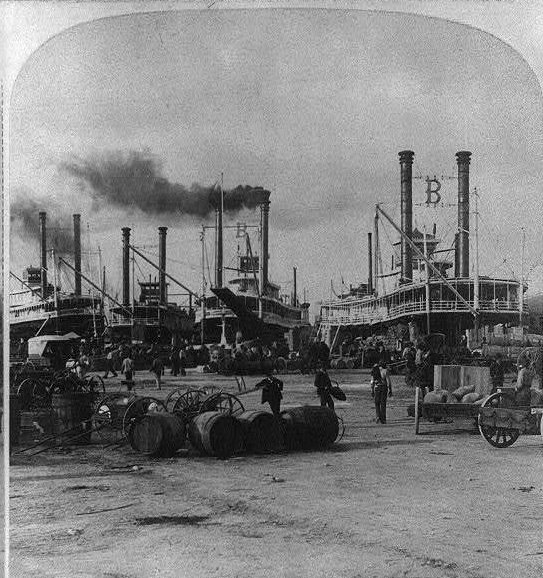87.
At the end of the voyage Paolo had to abandon
the cat again, knowing now full well she would find him. He left her hiding in
his berth, where she had remained for days, sneaking out occasionally to do her
business, God knew where. For she acted like a normal cat now that she was with
him again, accepting his leftovers, defecating in the sink when she couldn't get out, demanding his caresses as rewards for
not just shitting at random. Perhaps not
totally normal, for she seemed to know she needed to be quiet, meowing only in
little trills and plurps, staying under pillow and cover when the American was
around. With such help, Paolo managed, in the remaining four days of the
voyage, to keep her hidden from the American, a feat made possible both by his
addiction to cards with genteel female company and by his growing suspicion
(Paolo could see it in his eyes) that Paolo was, if not a little queer, then
certainly rather strange.

A stranger now, indeed, in a very strange land.
The New Orleans harbor was teeming with every conceivable kind of ship and
boat, and the levee was lined with a forest of sooty cylinders, the huge smokestacks
of docked steamboats. The air seemed
thick with grime. As Paolo debarked he looked back and saw in the shadows
below-decks the immigrants waiting their turn. There, or in a similar space,
stood Regina five years ago, he could just picture her face, eager with hope,
darkened by fear. He tried not to feel guilty that he was a respectable visitor
who didn't have to endure the humiliation of being "processed" as an immigrant. These poor contadini
had to prove that they wouldn't be a "burden to the community," that they were not without prospects, that they
were not idiots, nor carriers of infection, nor banditi. They had to
swear that they were not bound by contract−−with a padrone, say, as his own brothers had
been, back when it was legal. Since he was a gentleman who had actually been
invited to New Orleans, Paolo was not detained. All he had to do was show his
papers and answer a few questions. Although he was born in Sicily, the address
on his passport was Padua, where they could see he was associated with a major
university. They treated him with respect, even sympathy when he told them he
might stay awhile to be with his dying mother.
Mama also thinks Madame Montanet is protecting
her, with silly charms she calls gri-gri, from the evils of this house.
Remember I told you it's supposed to be haunted? Mama has heard noises
on the roof about once a month since we moved here. She's even seen the ghosts of a cruel mistress and her
tortured slave, who somehow managed to break away while being whipped and got
up to the roof, from which she jumped to her death. Her footfalls thump over
the roof once a month. No, not during the full moon, Paolo. (I can just picture
you asking that!) I've heard the noise, but have never seen the
ghost. Mama is sure it was the slave running on the roof, but Mama takes
morphine. Even now during this remission because she says when she doesn't take it she sees the ghosts. Shouldn't it be the other way around? I only hope you
get here before she dies. I'm sure these remissions are only temporary.
"Paolo?"
